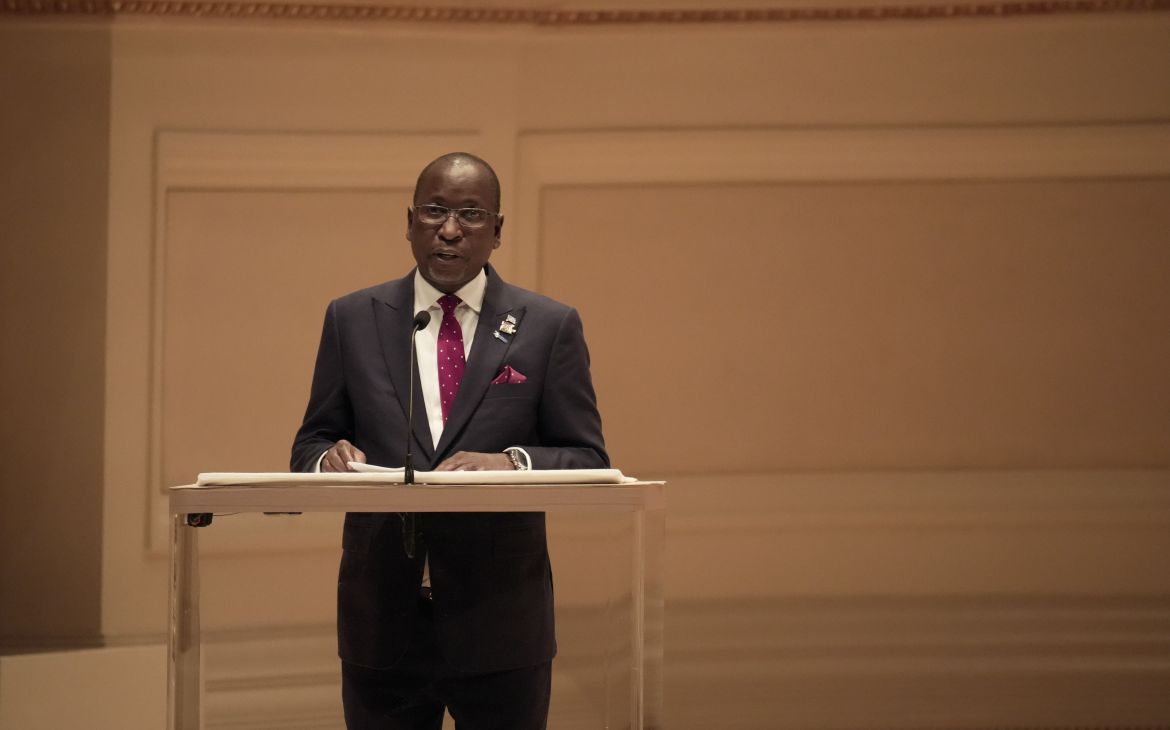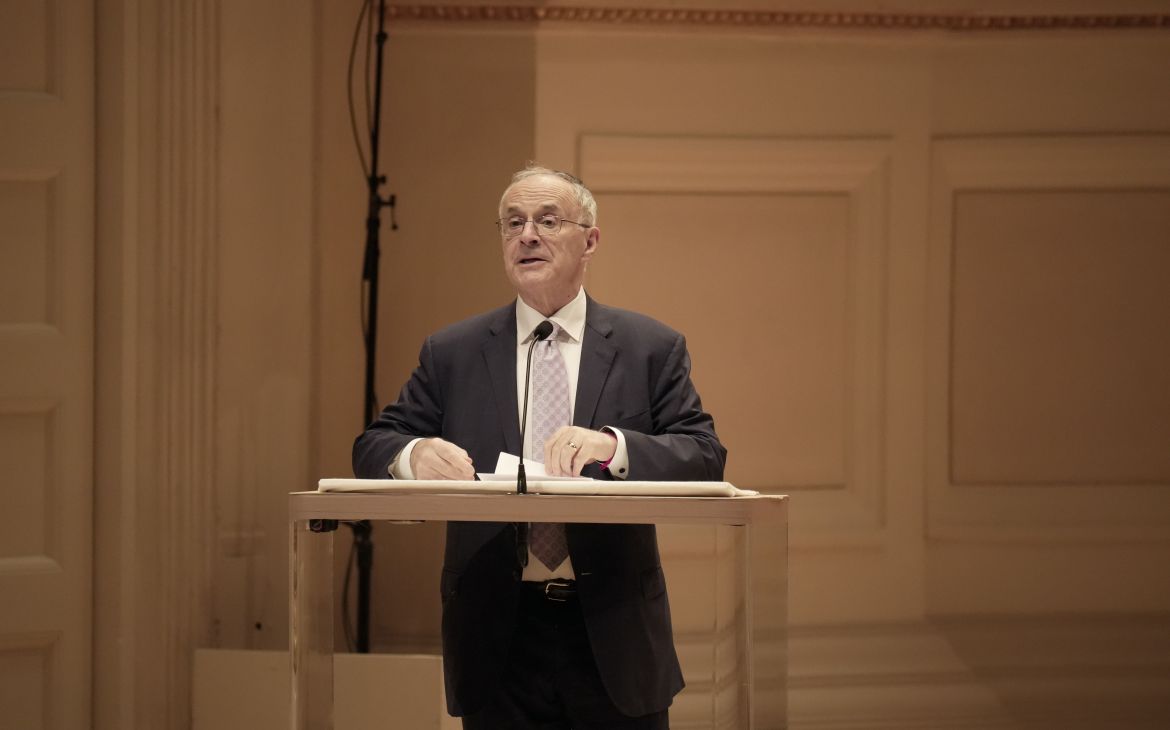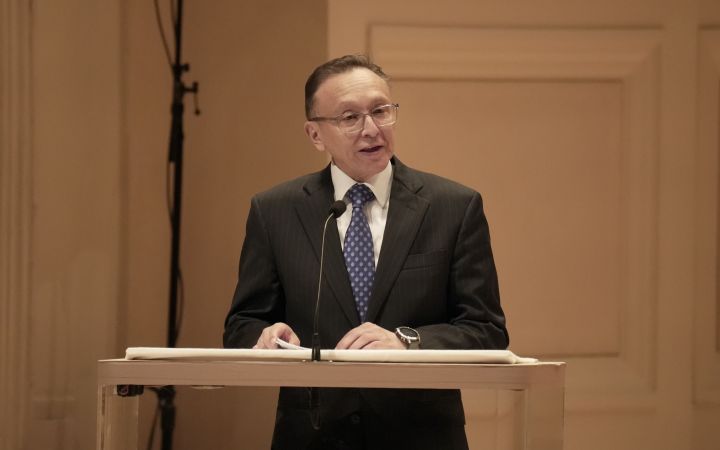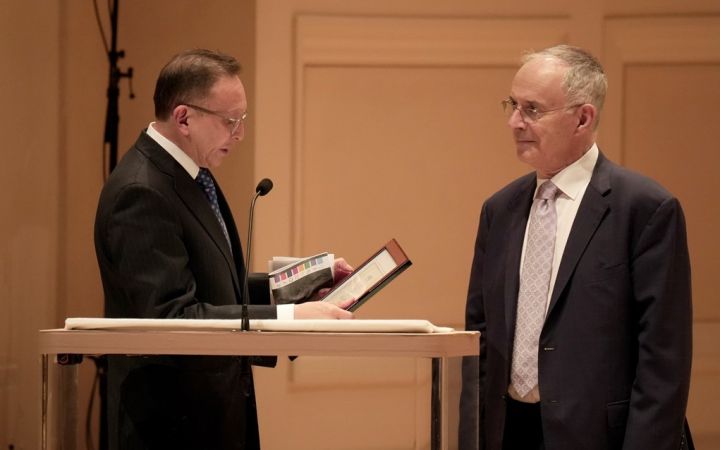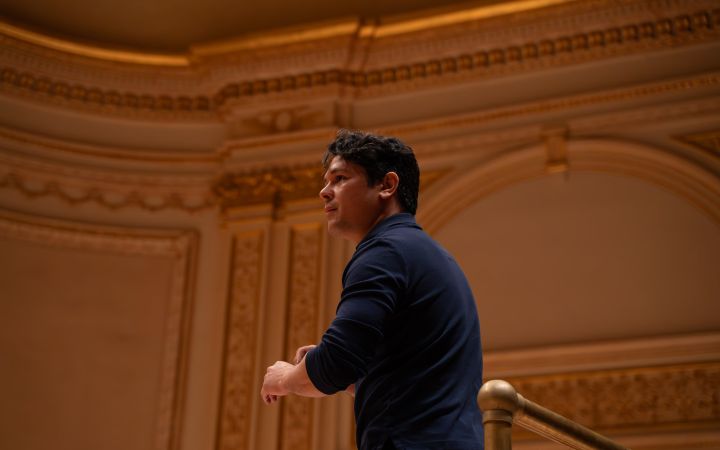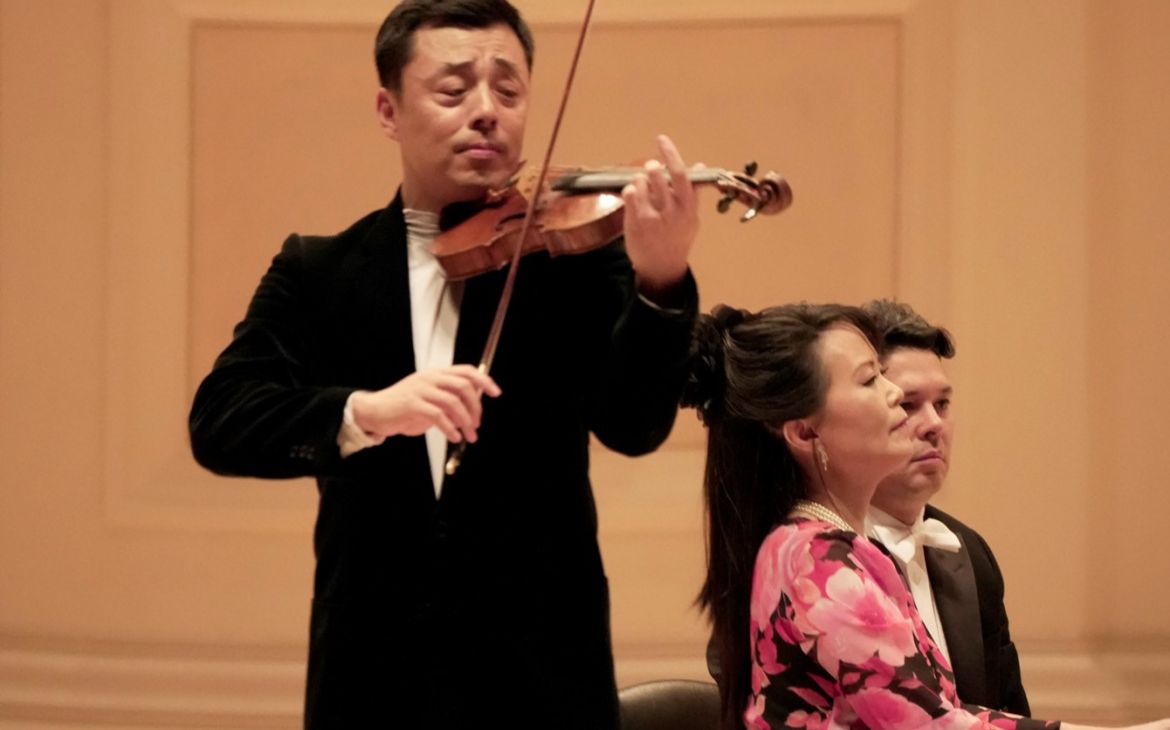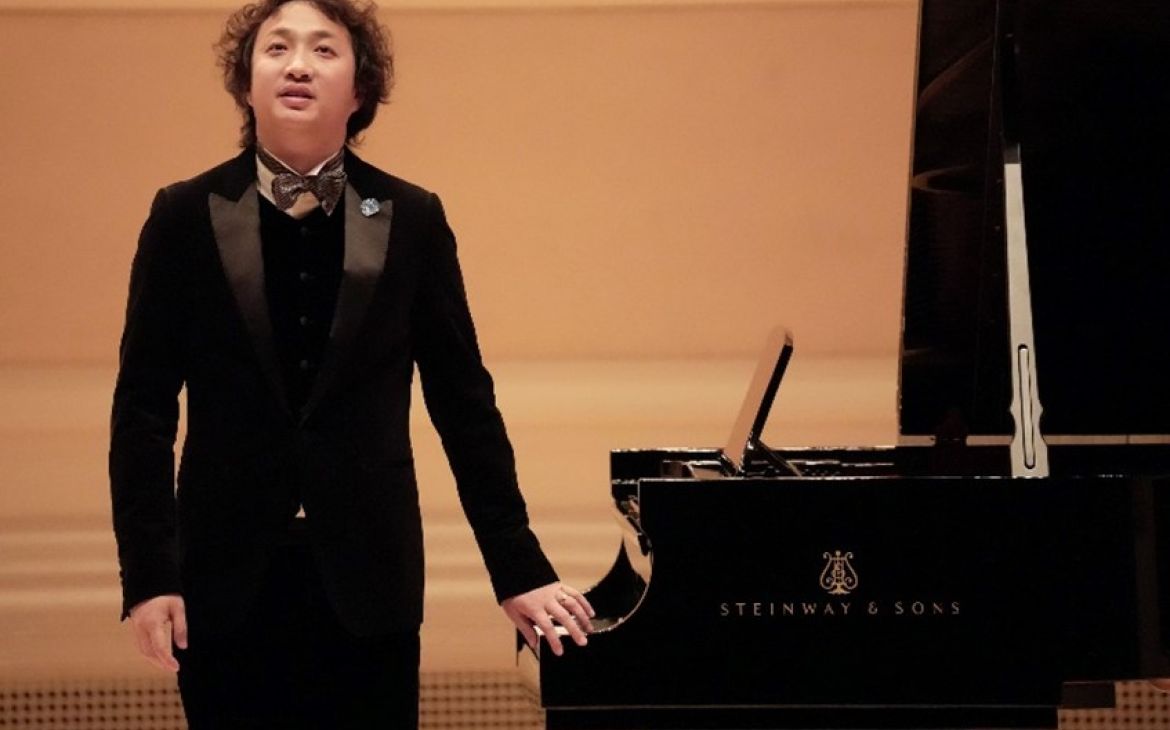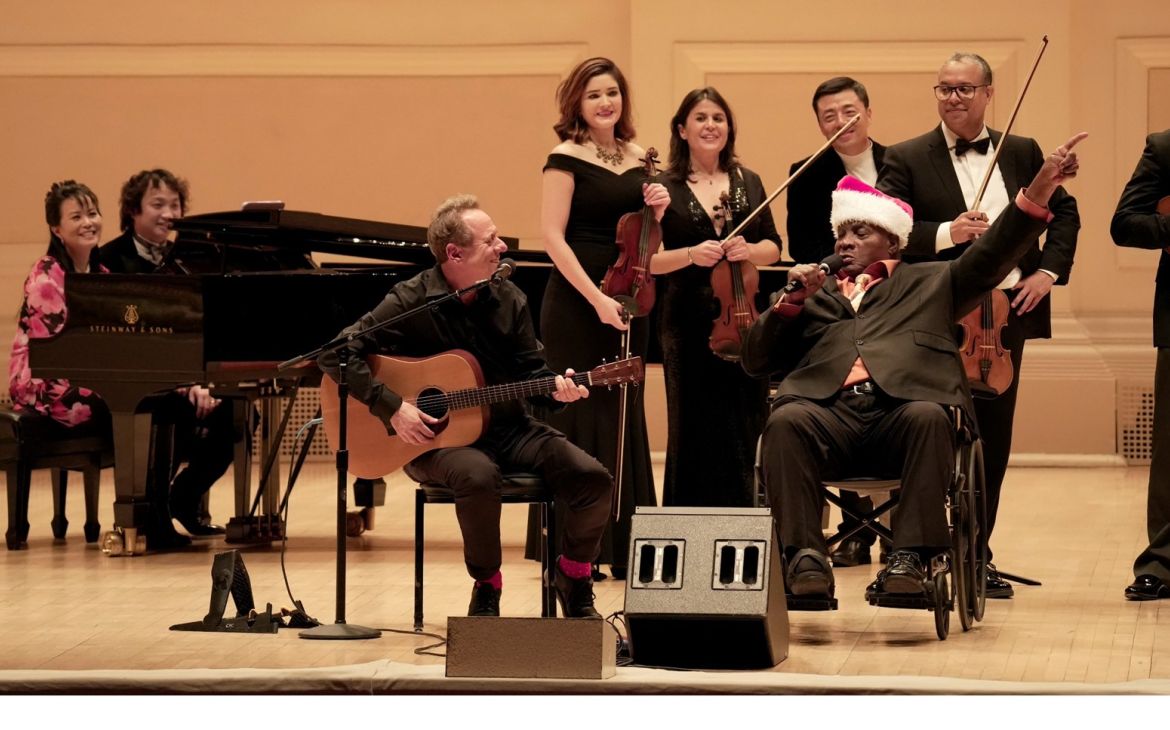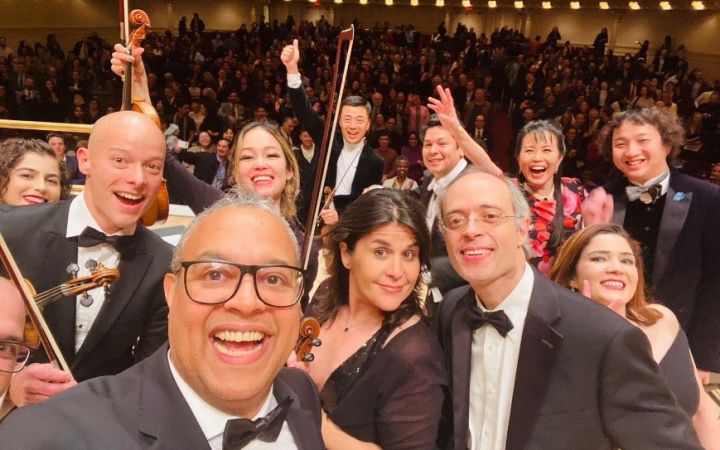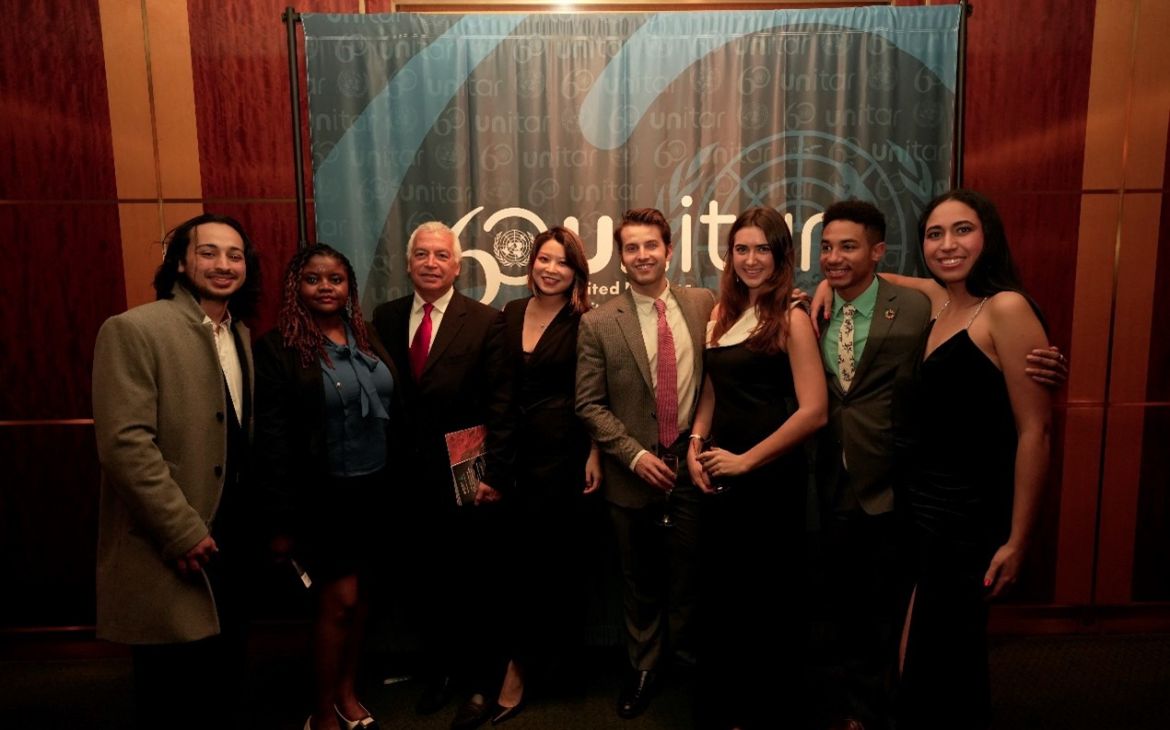12 December 2023, New York, USA – An evening of musical grandeur unfolded in the New York City landmark, Carnegie Hall, on December 11, 2023, as the United Nations Institute for Training and Research - New York Office (UNITAR-NYO), the President's Office of the 78th United Nations General Assembly, and Carnegie Hall partnered for an extraordinary concert. Titled "In Celebration of the Work of the 78th United Nations General Assembly and PGA H.E. Mr. Dennis Francis: A Concert For Peace, Prosperity, Progress, and Sustainability - An Annual UN Family Reunion". Under the support of the member states Costa Rica, Ecuador, Singapore, Monaco, and Oman, the event is another successful demonstration of the unity between culture and diplomacy – especially during this complicated time.
The concert commenced with opening remarks by Sir Clive Gillinson, Executive and Artistic Director of Carnegie Hall, who emphasized the power of unity and spirit of collaboration – “music and the arts have to bring people and nations together.”
Representing the President of the 78th United Nations General Assembly, H.E. Mr. Dennis Francis, Chef de Cabinet H.E. Mr. Collen Vixen Kelapile. Mr. Kelapile expressed the importance of uniting communities of people, especially during this challenging time. Music allows the audience to connect with the performers and each other, and it demonstrates the power of the UN through wordless language.
The Deputy Permanent Representative of Ecuador, H.E. Mr Andrés Montalvo Sosa, speaking on behalf of the Permanent Representative of Ecuador, H.E. Mr José De la Gasca, expressed his gratitude to the audience for attending the concert, and highlighted UNITAR-NYO’s continuous efforts in advancing the relations between the UN and the Member States.
In acknowledgement of Sir Clive Gillinson's active role in connecting culture and diplomacy through hosting the UNITAR's sixtieth-anniversary concert and the annual PGA concert, Mr Sosa presented the UNITAR certificate of recognition—a specially crafted acknowledgement for highly distinguished individuals—directly to Sir Clive Gillinson on the Carnegie Hall stage.
As the evening unfolded, each performance added its unique character to the event's rich tapestry. The concert, a symphony of diverse expressions, resonated deeply with themes of peace, prosperity, progress, and sustainability, aligning harmoniously with the Sustainable Development Goals.
Maestro Jorge Soto, the principal conductor for the orchestra, shared his insight: “In conducting this diverse repertoire, we’re not just playing music; we’re narrating stories that transcend geographical boundaries. The orchestra’s harmony is a metaphor for the world we strive to create — one where different voices come together in unity.”
The night began to bloom with Luciano Lamonarca’s tender rendition of "Non ti scordar di me," weaving a narrative of remembrance and universal longing. This piece, with its loving melodies, encouraged the audience to reflect on shared memories and aspirations, setting a beautifully introspective tone for the evening.
Following Luciano Lamonarca’s emotive performance, Liang Chai's violin skillfully brought Vivaldi’s “Spring” to life. The notes, like blossoming spring flowers, danced through Carnegie Hall, embodying a world in perfect harmony with nature. This celebration of nature's renewal elegantly collided with poignant strains of Piazzolla’s “Winter” and “Spring,” and concluded with a soul-stirring rendition of Vivaldi’s “Winter.” Each movement, articulated through Chai's expressive bow strokes, painted a vivid picture of our planet’s exquisite yet delicate beauty, underscoring our shared duty to protect and cherish it.
The concert’s narrative shifted gracefully with Sarasate's “Carmen Fantaisie de Concert,” where the duet between Liang Chai and Sarah Infini Takagi spun a story of empowerment and grace. Their intertwined melodies became a musical homage to global efforts for gender equality, celebrating the resilience and strength of women.
Byron Wei-Xin Zhou’s rendition of Ravel's 'Gaspard de la nuit' offered a contemplative journey, its complex rhythms reflecting the multifaceted path towards achieving sustainable societies. This performance resonated with hopes for health, wellness, and equity.
Luciano Lamonarca then returned to the stage with "Tu ca nun Chiagne," a piece imbued with deep emotional resonance, and first debuted in Carnegie Hall on this very stage over five decades ago. The concert continued its celebration of diversity with “Danzas Latinoamericanas” and Venezuelan folk songs, presented by Carlos Capacho and Juan Sebastian, painted a vivid portrait of Latin American life and emphasized the vitality of sustainable communities.
The concert's vibrant journey through diverse musical landscapes reached a particularly captivating moment with the entrance of Mighty Sparrow, the esteemed Calypso legend. His appearance added a palpable surge of energy to the hall, marking a high point in the evening's celebration of global cultures.
Mighty Sparrow's performance of "Jean and Dinah" was not just a song but a vivid narrative painted with the hues of Trinidad and Tobago's rich cultural tapestry. His charismatic voice and rhythmic mastery encapsulated the vibrant spirit of the Caribbean, bringing the audience into a world where music is an integral part of daily life and community. The performance was a seamless blend of music and expression, resonating with the concert's themes of unity and diversity.
In his delivery, Mighty Sparrow brought the essence of Calypso to life, its rhythms and lyrics echoing the resilience and joy of his homeland. This performance stood as a reminder of the power of music in celebrating identities and fostering global understanding. His presence on stage was a testament to the enduring appeal of musical traditions in bridging divides and connecting people across the world.
Byron Wei-Xin Zhou, the Artist Director, who was guided by the artistic vision of the evening's array of performances, shared, “Tonight was not just a celebration of music; it was a tapestry of cultures and ideals interwoven through melody and harmony. Each performance was a testament to our shared humanity and our collective pursuit of a better world.”
The orchestra backing this concert is the United Nations Chamber Orchestra for Hope, a pivotal segment of the United Nations Festival Orchestra for Hope, delivered a performance that went beyond mere musical entertainment. Their presence on stage became a profound symbol of global harmony and the inspirational role of music in uniting people across borders. Each musician, hailing from various parts of the globe, brought not only their musical expertise but also their cultural narratives, presenting a rich artistic landscape. Their collaboration on stage was a powerful demonstration of how collective effort, regardless of differing backgrounds, can create a resonant and impactful symphony.
As the concert at Carnegie Hall reached its finale, the concert transcended its artistic boundaries, metamorphosing into an eloquent manifesto of education and enlightenment. Each performance, with every note and melody, contributed to a narrative much larger than itself — one that championed understanding, education, and the dissemination of cultural wisdom.
This event demonstrated the role of music as a powerful educational medium, adept at conveying complex global themes and cultural stories in a language that goes beyond borders. The concert served as an engaging lesson in global citizenship, effectively illustrating the importance of recognizing and valuing cultural diversity in forging a more united and empathetic world.
In summarizing the significance of the event, Ambassador Marco A. Suazo, head of UNITAR-NYO, reflected on the night “as a commitment from UNITAR-NYO, and the UN as a whole, to continue working on achieving the Agenda 2030 through productive partnerships. The collective efforts allow us to not only address the complex challenges but to potentially provide diverse solutions by advancing together cross industries.”


